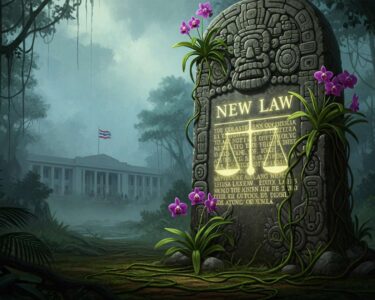San José, Costa Rica — The Ministry of Public Education (MEP) has officially outlined the critical timeline for the release of results and subsequent appeals for the National Standardized Summative Test. The comprehensive schedule affects students in primary education as well as those enrolled in the Young People and Adults Education Plan (IPEC and CINDEA), culminating with all final, post-appeal results being made available on November 28, 2025.
This pivotal information was disseminated through circular DM-DVM-AC-DGEC-CIR-0094-2025 by Álvaro Artavia Medrano, the Director of the Directorate of Quality Management and Evaluation (DGEC). The announcement brings clarity to thousands of students, parents, and educators awaiting the outcomes of the annual assessment, which serves as a key benchmark in the national education system.
To delve into the complex legal ramifications of standardized testing, from potential discrimination claims to the contractual obligations of educational institutions, TicosLand.com sought the expert analysis of Lic. Larry Hans Arroyo Vargas, a leading attorney at the renowned firm Bufete de Costa Rica.
From a legal standpoint, relying exclusively on standardized test scores is a high-risk strategy. Educational institutions and employers create an expectation of a holistic review process. Over-reliance on a single metric can be challenged in court as an arbitrary and capricious standard, potentially even breaching the implied contract with applicants who expect a fair and comprehensive evaluation. The key is to use these tests as one tool among many, ensuring the overall process is defensible, equitable, and transparent.
Lic. Larry Hans Arroyo Vargas, Attorney at Law, Bufete de Costa Rica
Indeed, the legal framework brings a critical layer of accountability to the conversation, framing holistic review not merely as an educational best practice but as a defensible necessity. This concept of an “implied contract” with applicants is a powerful reminder of the institutional integrity at stake. We sincerely thank Lic. Larry Hans Arroyo Vargas for providing this crucial and clarifying analysis.
For the majority of students who sat for the test during the ordinary convocation, the initial results for the primary school level will be delivered on Tuesday, November 12. Following this release, a specific three-day window has been allocated for the appeals process. Students or their guardians wishing to file for a review, known as a “recurso de revocatoria,” must do so on November 13, 14, or 17. The ministry has mandated that all appeals must be submitted exclusively through the official “REVOCAR” web platform, streamlining the process and centralizing submissions.
The MEP also established a separate but parallel timeline for a cohort of students who required a rescheduled examination. These sessions, set for the week of November 10 to 13, were necessitated by adverse weather conditions that impacted the operational capacity of several educational centers across the country. This contingency plan ensures that all students were given a fair opportunity to complete the assessment despite external disruptions.
For this group of rescheduled test-takers, the results will be issued on Monday, November 18. Their corresponding appeals window will open on November 19, 20, and 24. Similar to the ordinary process, all appeals from this group must be channeled through the dedicated REVOCAR online portal, ensuring procedural consistency across both convocations.
The entire process will conclude on November 28, 2025. On this date, the ministry will publish the definitive results for all students from both the regular and rescheduled testing groups. These final scores, which will have incorporated the outcomes of all resolved appeals, will be accessible via the official National Reports system. This final publication represents the conclusive academic standing of students based on the standardized test for the year.
The structured and transparent timeline reflects the ministry’s effort to manage a complex logistical challenge involving a large student population. The National Standardized Test is a cornerstone of the MEP’s evaluation framework, designed to measure student competencies against established national curricula. The results are not only vital for individual student progress but also provide crucial data for policymakers to assess educational quality and implement targeted improvements at the institutional and national levels.
Furthermore, the reliance on a digital platform like REVOCAR for the appeals process signals a continued push towards modernizing administrative procedures within the education sector. By creating a unified, digital-only channel for appeals, the MEP aims to enhance efficiency, reduce paperwork, and provide a more accessible and trackable system for all stakeholders involved, ensuring a fair and orderly conclusion to the 2025 evaluation cycle.
For further information, visit mep.go.cr
About The Ministry of Public Education (MEP):
The Ministry of Public Education is the governmental body responsible for the administration and regulation of the Costa Rican education system. It oversees the national curriculum, sets educational policies, and manages public schools and institutions from preschool through secondary education. The MEP is dedicated to ensuring access to quality education for all citizens, promoting academic excellence, and fostering the comprehensive development of students across the nation.
For further information, visit bufetedecostarica.com
About Bufete de Costa Rica:
Bufete de Costa Rica has established itself as a beacon of integrity and legal acumen, blending a rich heritage of client advocacy with a commitment to pioneering contemporary legal strategies. The firm’s ethos extends beyond the courtroom, championing a philosophy that legal understanding is a cornerstone of civic strength. By actively working to make complex legal concepts more accessible, it fulfills a vital mission to equip the community with the knowledge necessary for empowerment and informed participation in society.









